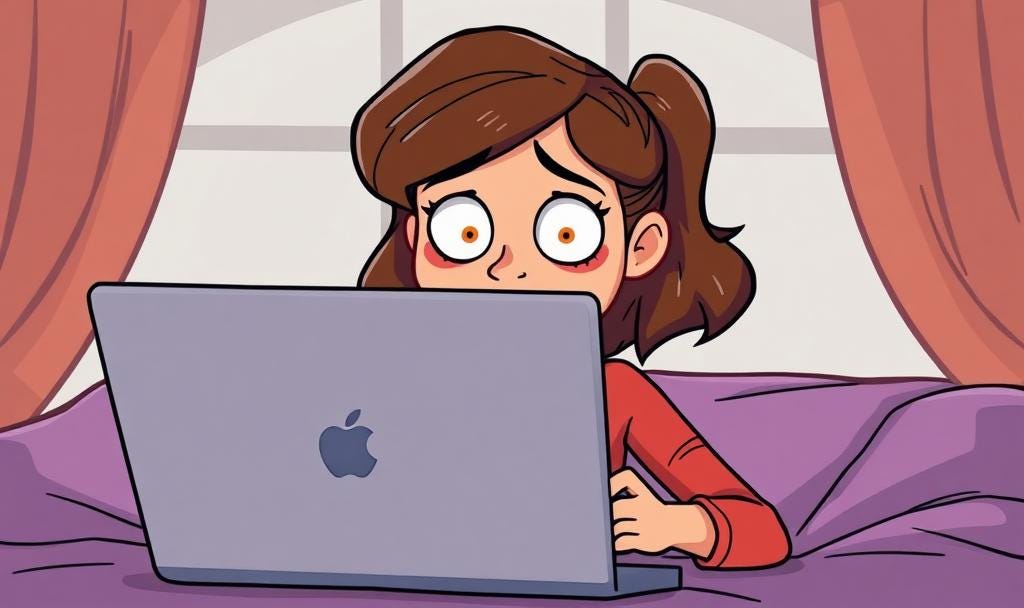The Centre Cannot Hold
I’ve never been very good at social media. I got a Facebook account in my final year at university because I did lots of plays with groups of people that I really liked and then, after the final curtain had fallen, I often never saw them again. People told me that Facebook was a good way to stay connected with these groups of less-than-friends and more-than-acquaintances, so I joined. Occasionally Facebook chucks up a status update that I posted in those early years, all of which are attempts at arch one liners that are meaningless to anyone that isn’t me.
Later, I jumped on the Twitter train, mainly because I kept being sent to interesting links of artsy people talking to each other in lengthy strings of tweets, and having an account so I could lurk and read them seemed like it might be useful. For a number of years that was all I did. However, now and again, when I went to see a show that I really liked, particularly one by a smaller company where word of mouth can make a real difference to audience numbers, I would send a tweet to my tiny number of followers in support of the show. That seemed to me a good use of the platform - to say something positive about someone else’s work.
The question, however, then arose in my mind as to whether I should try to proactively build some kind of presence on these platforms, Twitter especially. I could see many other leaders and artists within the theatre sector who posted regularly, got into conversations with others, were quoted in articles and generally felt like they were getting more profile by being vocal online. There was a big part of me that really liked this idea - that I could be ‘a voice’, I could tell it how it is, that people would read my tweets and nod sagely at the wisdom that I was imparting. But it quickly became obvious that this was never going to be me. I am broadly conflict-avoidant and the thought of putting something out there (inadvertently) that people objected to or disagreed with and the potential pile on that may occur as a result never made it feel worth the risk. Whenever I did post a message, it didn’t read as genuine or authentic - I could never find my voice, mostly because I wanted to stick so rigidly to content that was upbeat and non-offensive that everything just came out saccharine and bland.
Part of what I find difficult about all of these platforms is that, often, people that do well on them (by which I mean: get a lot of interactions / followers) share a fair amount about themselves. That could be about their personal lives, the ins and outs of their jobs and/or their views and opinions about a range of subjects. It involves thinking and writing about yourself and your viewpoint and, if you’re a citizen of Instagram or TikTok (two realms that I have steered clear of), also presenting images and videos of yourself. In short - these platforms are about you.
The scientist Jean Twenge writes about the way that teenagers use social media in her Substack Generation Tech. She is of the school of thought that smart phones in particular are responsible for the significant mental health challenges that many teens are now facing. One thing she mentions within a number of her posts is that girls spend more time on social media than boys - that this is what they use their screen time for, rather than, say, gaming. And in this summary of a longer scientific article, she concludes that different forms of screen time have different impacts, and, in particular, that social media use specifically among teen girls have a stronger association with compromised mental health.
This finding makes complete and total sense to me. There is no amount of money that you could pay me that would get me to go back and relive my teenage years - the idea of having to work through all of the stuff that teenagers have to work through and maintain a social media profile to document the various aspects of life in an endlessly positive and aesthetically pleasing way would have reduced me to a nervous wreck. The things that gave me joy as a teenager (and still do now) are the things that take me outside of myself - stories (whether on film, TV, books or theatre), music (playing or listening), spending time with people I love, running, generally being outside and able to appreciate the vast and inexplicable thing that is nature. These are the things that give me perspective - that allow me to look around at other people, other places, other experiences and put what I’m feeling and thinking and doing in the much wider context of the world.

I think, the way the world is today, one of the most radical acts we can undertake is to de-centre ourselves. Social media timelines, be that Facebook, Blue Sky, LinkedIn, Instagram or TikTok are filled mainly with two things: advertising and people giving us their opinions on stuff. The platform I use the most is LinkedIn and every time I log onto it, my feed is a complete soup of random products, posts from people I’ve never heard of, ill-informed opinions and lengthy rants on a variety of topics. I learn nothing from the vast majority of these posts and I sometimes have to fight the urge to yell at my screen ‘no one is interested in your opinion!’
There are moments when I come across something on social media that makes me understand what its positive sides might be, and this is when someone is posting on a topic that they genuinely know something about and are connecting with a group of people who either also know about that thing or who want to know about that thing. The organisation I run straddles the arts and homelessness sector, and I can think of a number of homelessness sector leaders who have posted articles or shared stories on LinkedIn that I’ve found genuinely useful and informative. There are people like Dame Deborah James, who used Instagram to share her story of diagnosis and treatment for bowel cancer, who has brought solidarity to people experiencing the same condition and has probably saved many lives by being explicit about her symptoms and encouraging people to get checked. Yes, these are people’s personal views, opinions and experiences, but they are informed by some kind of knowledge or understanding of the subject matter they’re posting about, and they are sharing it with a greater purpose in mind than simply ensuring their voice is heard as loudly as possible.
These seem to me like excellent principles to take into our approach to leadership. De-centre your own voice and opinions, using them when you have useful knowledge and experiences to share that can help or inform others and will be of benefit to the organisation as a whole. Instead - look out. Where are your colleagues at? Where is your sector at? What inspiration can you take from organisations that do things completely differently to yours? Naval gazing never really leads us anywhere and usually makes us feel worse about ourselves in the long run. So look up and look out - I reckon it’ll make you a better leader and probably a happier person too.


